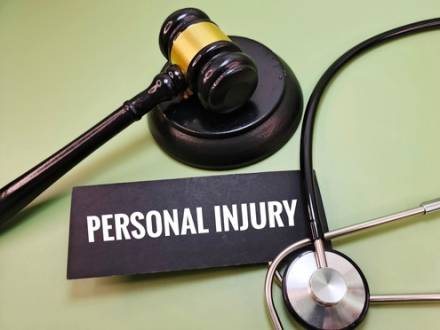How Do Statutes of Limitations Work in Illinois?
 If you have been injured in an accident, time is not on your side. In Illinois, personal injury claims are subject to statutes of limitations. These are strict legal deadlines that determine how much time you have to file a lawsuit. Missing that deadline could mean losing your right to recover compensation forever, even if your case is very strong.
If you have been injured in an accident, time is not on your side. In Illinois, personal injury claims are subject to statutes of limitations. These are strict legal deadlines that determine how much time you have to file a lawsuit. Missing that deadline could mean losing your right to recover compensation forever, even if your case is very strong.
Understanding how these deadlines work is essential for anyone pursuing a claim. At Adler Injury Law, Ltd., our Rolling Meadows personal injury attorney helps injury victims fight back against large insurance companies. We offer free consultations and are committed to protecting your rights from day one.
What Is a Statute of Limitations?
A statute of limitations is a law that sets the maximum amount of time you have to file a legal claim after an injury or wrongful act occurs. The purpose of these deadlines is to ensure that lawsuits are filed while evidence is still fresh and witnesses’ memories are reliable.
If you file your case after the time limit expires, the court will almost always dismiss it, even if you have serious injuries. That is why you must act quickly after an accident, especially when dealing with insurance companies that may try to delay or deny your claim.
How Long Do You Have to File a Personal Injury Lawsuit in Illinois?
Under 735 ILCS 5/13-202, most personal injury cases in Illinois must be filed within two years of the date the injury happened. This includes cases such as:
-
Car, truck, or motorcycle accidents
-
Slip and fall injuries
-
Medical malpractice
-
Dog bites
-
Assault or other intentional injuries
If the injured person is a minor at the time of the accident, the statute of limitation typically does not begin until they turn 18. This gives the injured minor until age 20 to file a lawsuit in most cases.
Are There Any Exceptions That Extend the Injury State of Limitations in Illinois?
While the two-year deadline applies to most injury cases, Illinois law allows for certain exceptions. One common example is the "discovery rule." This rule applies when the injured person does not immediately know that they were harmed or that someone else’s negligence caused their injuries.
For instance, if a person develops a medical condition years after being exposed to toxic chemicals, the statute of limitation might not begin until they discover the condition.
There are other exceptions that can make timing complicated, so it is best to speak with an attorney as soon as possible to determine how much time you truly have to file.
What Happens If You Miss the Statute of Limitations?
If you try to file a lawsuit after the statute of limitations expires, the defendant can file a motion to dismiss, and the court will almost certainly grant it. That means your case is over before it even begins.
Insurance companies know this, and they often take advantage of it. They may delay negotiations or draw out the claims process in hopes that the clock runs out on your right to sue. Once that happens, they have no legal obligation to pay you anything.
An experienced personal injury lawyer can ensure your case is filed on time, preserving your right to full compensation for your medical bills, lost wages, and pain and suffering.
Contact a Rolling Meadows, IL Personal Injury Attorney
Whether you were hurt in a car accident, a fall, or another serious incident, our Cook County personal injury lawyer at Adler Injury Law, Ltd. can help. We have many years of experience handling personal injury cases, and we fight hard against large insurance companies that try to avoid paying fair compensation.
Call 312-236-2700 today to schedule your free consultation and get the experienced legal support you need to protect your rights and your future.
No Fee Unless We Win







 312-236-2700
312-236-2700






